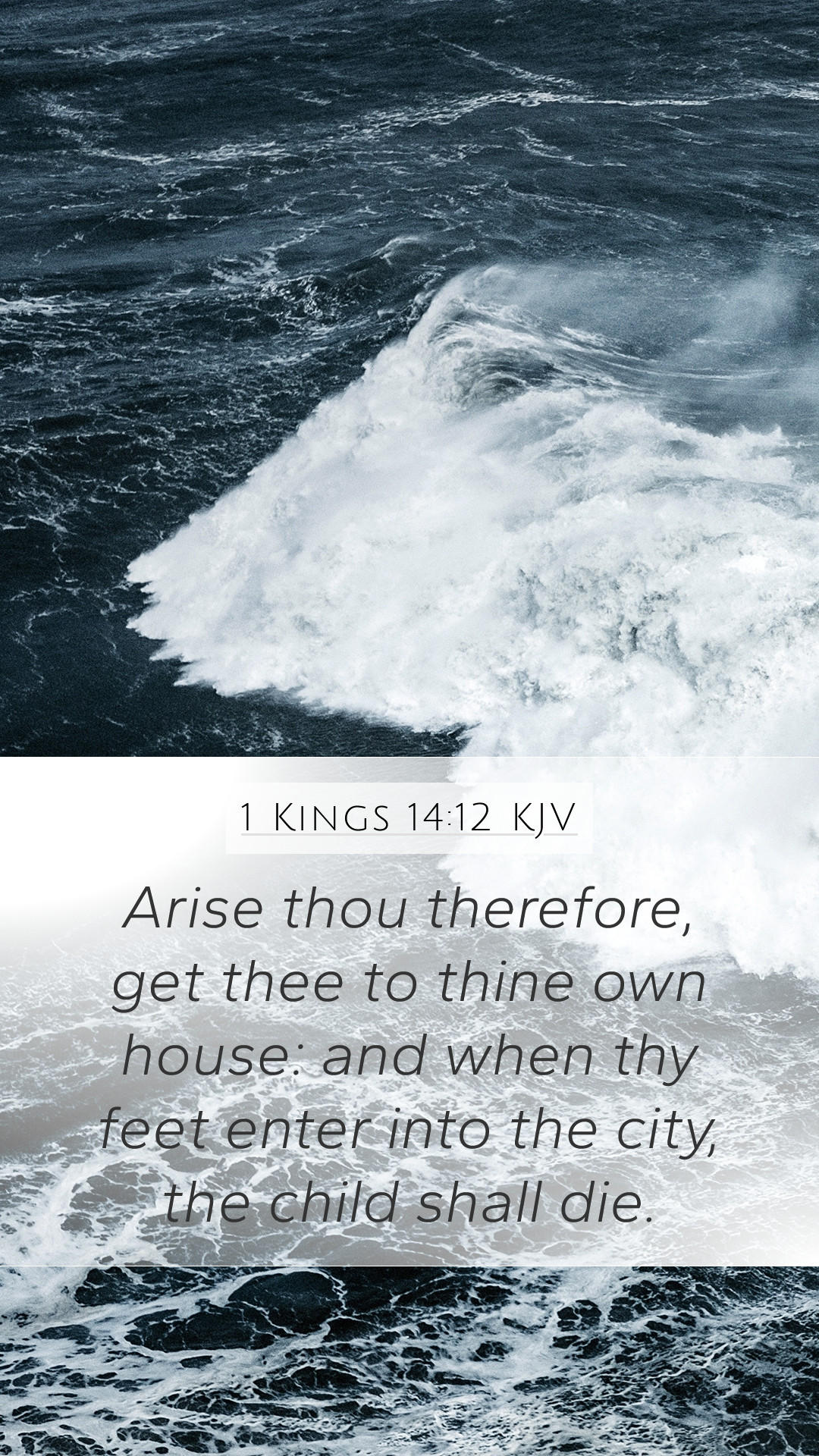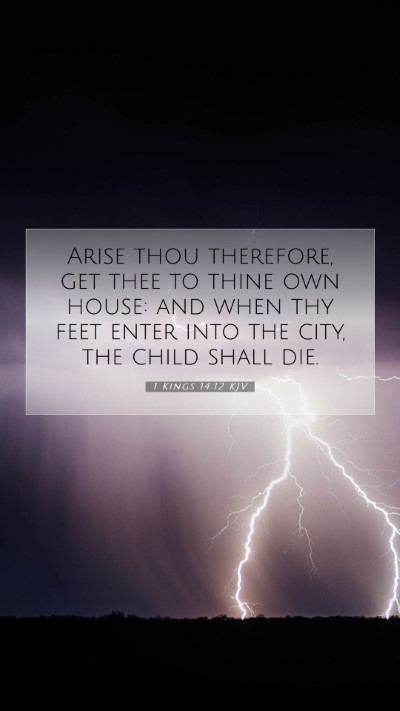Bible Verse Meaning of 1 Kings 14:12
Verse: "And arise thou therefore, and get thee to thine own house: and when thy feet enter into the city, the child shall die."
Summary
The verse 1 Kings 14:12 depicts a moment of divine judgment, communicated through the prophet Ahijah to Jeroboam’s wife. This passage not only highlights the impending death of Jeroboam's son but also serves as a profound commentary on the consequences of disobedience to God.
Insights from Public Domain Commentaries
Matthew Henry's Commentary
Matthew Henry emphasizes the seriousness of divine pronouncements and the irreversible nature of God's judgments. He notes that in the context of Israel's unfaithfulness, the death of the child symbolizes God's disapproval of Jeroboam's actions and the consequences that follow. The prophet's directive to return home signifies a personal revelation tailored to Jeroboam’s family and their spiritual state. The emphasis here is on the familial impact of national sins and leadership failures.
Albert Barnes' Notes
Albert Barnes highlights that this verse illustrates God’s sovereignty over life and death. He asserts that the pronouncement is a direct consequence of Jeroboam's rejection of God’s commandments. The death of the child is presented not only as a fate sealed by divine decree but also as a corrective measure to lead Jeroboam back towards introspection regarding his rule and decisions. He also comments on the noticeable absence of public mourning for the child, reflecting the spiritual desolation of the time.
Adam Clarke's Commentary
Adam Clarke's analysis of this verse presents a historical and theological context where he elaborates on the significance of the child’s death as a pivotal act of judgment. He indicates that the warning given to Jeroboam's wife serves as both a final chance for repentance and a stark reminder of the consequences of leading a nation away from covenant faithfulness. Clarke's position underscores the intimate connection between the personal and national realms of sin, drawing the reader to consider how leadership impacts community faithfulness.
Applications and Understandings
The implications of this verse extend beyond historical context; they challenge contemporary believers to reflect on their relationship with God and how personal decisions can influence broader societal dynamics. This passage invites consideration of the weighty responsibility leaders hold in maintaining their commitments to God and nurturing faithful practices among those they govern.
Related Bible Verses
- 1 Kings 13:1-2 - The prophecy against Jeroboam and their implications.
- 2 Chronicles 23:16 - Understanding the consequences of kingship and covenant.
- Amos 3:2 - The idea of being chosen by God comes with responsibility and judgment.
Conclusion
1 Kings 14:12 serves as a critical text in understanding the severity of divine communication and judgment. The providence of God in the life of Jeroboam reveals much about kingship, familial responsibility, and the importance of obeying God’s commands. As readers seek to comprehend Bible verse meanings, interpretations, and applications, this passage provides a meaningful foundation for reflection in both personal and communal contexts.
Exploring Further
For those engaging in Bible study groups or seeking Bible study resources, this verse encourages a deep dive into themes of judgment, mercy, and leadership in the Scriptures. Additionally, understanding the historical context of Bible verses like this can significantly enhance one's study of Scripture.


